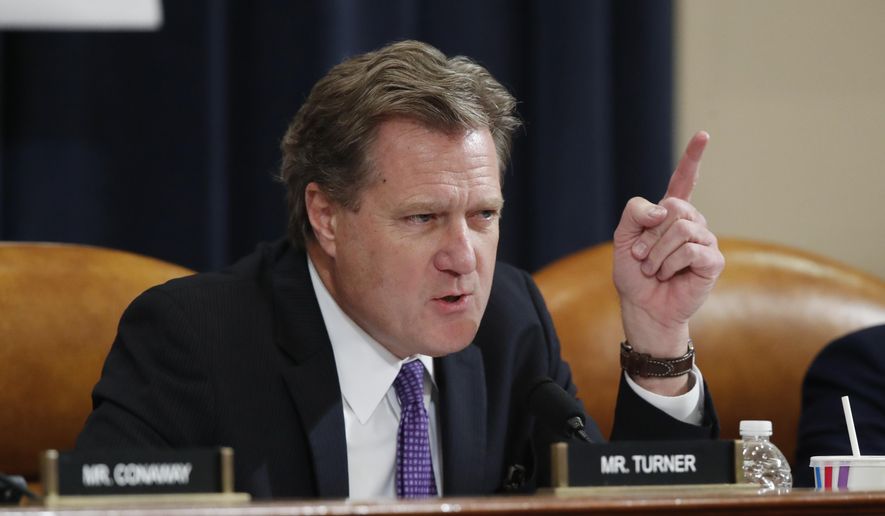The House will vote Tuesday on two competing bills to overhaul the federal government’s chief spy power under Section 702 of the Foreign Intelligence Surveillance Act.
The House Judiciary Committee and the House Intelligence Committee have put forward rival measures with major differences, and both bills have bipartisan support. The bill receiving more votes will move on to the Senate.
Critics say the spying tool threatens constitutional rights when FBI or U.S. intelligence officials sift through the data without a warrant looking for dirt on Americans, but national security advocates stress the need for it in order to fend off potential global terrorist threats.
The Judiciary Committee’s bill has far more stringent rules for federal officials to query the FISA database when intercepting communications of foreigners abroad. Americans can be ensnared in surveillance when communicating with targeted foreigners, and the Judiciary panel’s legislation would require a warrant whenever the government uses a U.S. citizen’s identity for a search of the data, with exceptions for national security.
It also would limit the number of FBI personnel in each field office and at FBI headquarters who can search the FISA database, and closes loopholes that allow the federal government to purchase Americans’ data.
Violations of Section 702, which would sunset after three years, would be punishable by up to eight years in prison.
The House Permanent Select Intelligence Committee’s bill would provide that Section 702 is only used for foreign intelligence by prohibiting the FBI from conducting “evidence of a crime only” queries. The proposal would reduce the number of FBI personnel authorized to approve queries about U.S. persons by more than 90%.
It also mandates additional approvals for certain “sensitive” U.S. person queries, such as queries of U.S. elected officials, political candidates, executive branch appointees, and members of the media.
Additionally, the Intelligence Committee’s legislation would create new criminal liability and administrative penalties and increase existing penalties for government officials who engage in a range of intentional misconduct.
The legislation sunsets FISA Section 702 after 8 years.
Intelligence Committee Mike Turner, Ohio Republican, earlier criticized the Judiciary’s FISA legislation, saying it “spends more time expanding the constitutional rights of foreigners who travel in and out of the United States. It creates civil liability for telecommunications companies that work with our intelligence community voluntarily.”
Mr. Turner also said the Judiciary bill provides immunity from prosecution for some “horrific crimes” if they’re discovered in the section 702 foreign intelligence collection.
Supporters of the House Judiciary measure said they are concerned about the government collecting data on American citizens and abuse of surveillance. They said their measure could be amended on the floor if needed.
Rep. Victoria Spartz, Indiana Republican and member of the Judiciary Committee, said her panel’s legislation did not go far enough in dealing with a few major issues, but that the Intelligence Committee’s bill is like “putting lipstick on the pig.”
“It’s a serious situation where rights of Americans are violated — material violations,” she said. “Ultimately, Judiciary Committee has a primary jurisdiction. If intelligence committee wanted to do amendments, we should open it to amendments and see where the members stand, but I don’t understand why we are putting in two bills. It doesn’t make sense to me.”
Leadership in both parties in the House and Senate had agreed to extend the current FISA Section 702 provision for four months within the annual Pentagon policy bill before Christmas, if the legislation includes an extension of the government’s chief spying powers.
Senate Democratic leader Charles E. Schumer of New York and Senate Republican leader Mitch McConnell of Kentucky said in a joint statement Thursday that the four-month extension would give Congress more time to negotiate an overhaul of Section 702.
The influential House Freedom Caucus said it was “prepared to use all available leverage to change the status quo. We will not simply vote ‘no’ on bad legislation and go home for Christmas.”
They said in a statement that “reauthorization of the Foreign Intelligence Surveillance Act must be considered only with significant reforms and as a standalone measure.”
They said they want to see a bill pass early next year. In the meantime, they want to continue the program to avoid a lapse in surveillance of national security threats.
• Kerry Picket can be reached at kpicket@washingtontimes.com.




Please read our comment policy before commenting.